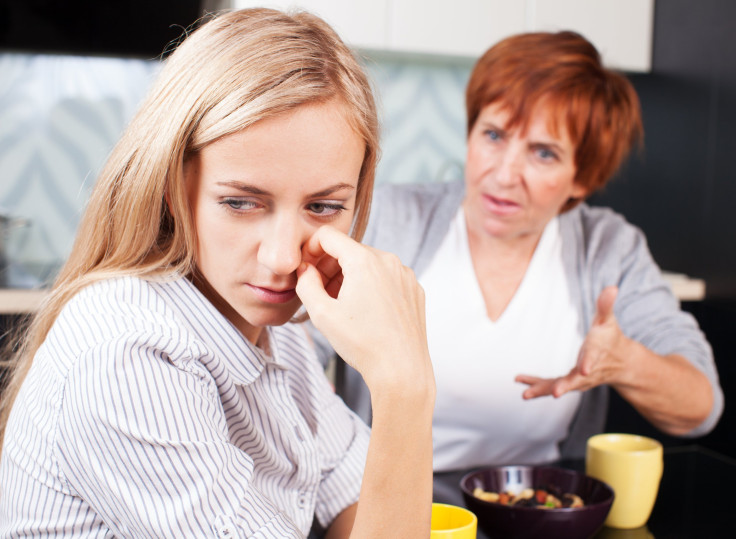Married Mothers More Depressed When Living With The Folks — Though They Are Happier When Living With An Unmarried Partner

All mother-in-law jokes aside, researchers from Duke University find that mothers living with parents or in-laws in a multigenerational household are more likely to be depressed unless they also live with a husband or romantic partner.
In the study, single and married mothers alike suffered higher rates of depression while living with extended family members during their baby’s first year of life. However, those with a live-in love interest fared better in a multigenerational household, experiencing lower levels of depression.
The association held strong across socioeconomic groups as women rich and poor more readily succumbed to depression while living “alone” among family members. The findings applied to most women with the exception of Latinas, who were six times as likely to experience depression under the same conditions: living in a multigenerational household during the first year after giving birth.
Joy Piontak, a senior analyst with Duke’s Center for Child and Family Policy, says that racial difference might at least partly reflect differing social values among Latinos and others. Whereas many married parents might feel expected to live independently as a nuclear family, social pressures might be different in the absence of marriage.
"There's a strong expectation that married couples will be economically self-sufficient," Piontak said in a statement. "Those are strong cultural values. So there could be a stronger sense of failure among married couples if they have to live with their parents."
Yet Piontak said she’s unsure about any causal relationship within the correlation. Living within a multigenerational household might worsen depression for single and married mothers, she said. Or perhaps such women are simply less likely to move from such households if they’re depressed.
The study was also limited by the lack of information about the quality of relationships among such multigenerational households. Piontak and her colleagues analyzed data from nearly 3,000 mothers in a nationally representative sampling of mothers with varying romantic status, including single, married, and that third category popularized on Facebook: “It’s complicated.”
Interestingly, the researchers found that such multigenerational “Old World” households are more common in the U.S. than previously thought. Some 7.8 million American children — or more than one in 10 — living in households with grandmothers, grandfathers, and the odd uncle or cousin here or there. Yet that rate rises to nearly half of all children born to single mothers, as such fledgeling families live at “home” for a while before establishing an independent household. Increasingly, such arrangements represent the modern American family, more common now than the classic nuclear household depicted on vintage television’s "Happy Days" and "The Wonder Years."
"We often talk about families in terms of mothers, fathers and children," Piontak said. "Or we talk about the marital status of the mothers. Families are often a lot more complex than we imagine them to be, though. And that complexity can affect mothers' well-being."
Piontak said researchers should make greater study of such families with regard to mental health problems.
Source: Piontak J. Household Composition and Maternal Depression: Examining the Role of Multigenerational Households. Journal of Family Issues. 2014.



























